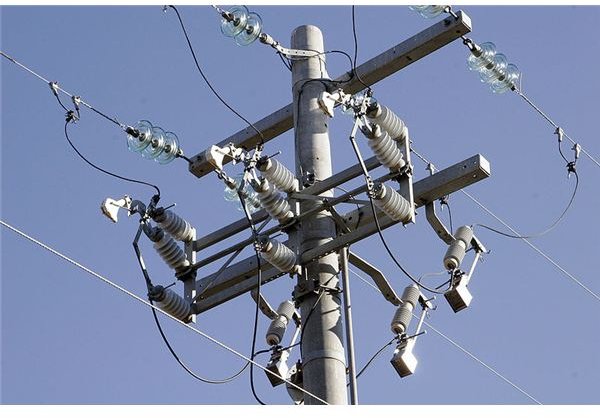The American Jobs Act: Small Business Owners Shouldn’t Get Their Hopes Up
Tax Credits Don’t Equal Cash Flow
First off, I didn’t read the entire American Jobs Act—it’s over 40 pages long and if you want to read it, there’s a link to the Act in the references section below. I must admit I tried to read it but there are so many “as applies to subsection 3111 of this act or that bill or this amendment” or “as allowed by the IRS tax code number 17000, subsection a, b and maybe f” that I really got bored—actually I got angry.
The average small business owner not only doesn’t have time to research these “acts” and “bills” and “subsections” they can’t find them–and even if they could, unless they’re lucky enough to be a certified public accountant versed in business tax law, they couldn’t understand them either.
I suppose along with Obamacare, (which I am overjoyed my spell checker now accepts without alerting me I’ve spelled something wrong), the AJA has a lot going on between those acts, bills, amendments and subsections, and it’s hard to decipher.
I’ll tell you here, tax credits will not help small business owners who are in dire need of the most important thing they really need: cash flow.
According to the Act, if an employer (small biz owner) qualifies by hiring specific workers under the Act—long term unemployed, for example, he or she will receive a tax credit of 6.2 percent. That’s nice, Mr. President, but that tax credit doesn’t come in the form of cash. It’s a deduction on a company’s tax return (for self-employed, too) and in the long run is really an allowed expense credit.
So, the small business owner determines his expenses for the year; and under payroll taxes, he can expect to add this new deduction to his other expense line items—it’s a number all right—on paper and it doesn’t put money in the bank or increase his sales revenues. Sure, the credit may offset his personal K-1 (partners share of profit or loss) that is attached to personal tax returns so he gets a little extra moola back, but is that helping what he needs right, right now? No folks, it’s not.
Today’s economy is so bad, and news reporters everywhere babble on and on about the high unemployment rate and how we need to get America back to work. That’s well and fine, but if the small business owner can’t sell his wares to people who have no jobs and no money to buy them, where are the revenues to hire those workers going to come from? I can tell you this, they aren’t hidden inside a tax credit.
It’s sort of a Catch-22 situation.
My Man Joe (No, Not That Joe)
Joe owns a small bakery and with so many people unemployed, his revenues are down. Even Joe has had to lay off a few people to meet his expenses. Then, along comes the AJA! Hooray for Joe the Baker right? No folks—wrong!
In a great AJA scenario, if Joe the Baker hires Sam who has been receiving unemployment for six months or more, he’d get a tax credit for hiring Sam, meaning that’s one person off the unemployment line. So who is actually supposed to increase the sales revenues at Joe’s Bakery? Maybe newly employed Sam can now afford to buy dozens of donuts each week to take home to his family (and help Baker Joe cover the expense of hiring Sam) but it doesn’t really do much more than that.
When are politicians going to wake up and realize you can offer tax credits up the wazoo but if you don’t find ways for the small business owner to make more money, he can’t afford to hire more workers—heck, he’s lucky he can pay himself.
An Electric Fence?

When I moved to Austin, Texas, recently with my six country dogs who were used to running on over two acres and are now down to less than half an acre, I found it hard to find a home with a fence secure enough to keep them at bay, inside their safe domain and away from other dogs, especially dog fights.
“Get an electric fence," a friend said to me. What? Why in the heck would I want to electrify my beloved country dogs?
“It only hurts the first time,” my friend reassured me.
“Oh yeah? You want to go first?” I asked.
Needless to say, I found a home but am in the process of securing the fence because just as with everything else gone wrong in America today, the quality of the workmanship on the fence I have is poor. But again, as always, I digress.
An electric fence would help the American small business owner. Before you leave me nasty comments, I don’t mean to shock people, I’m thinking of an imaginary electric fence, but a fence nonetheless.
We don’t need oil, steel, technology, cable, stone, glass, iron or cement from any other country—we need to get back to making everything here and selling it here. This is where the fence comes in: You want to open up a steel mill, do it; but you have to only sell your steel in the U.S. of A. and you can only hire U.S. workers. No selling to China or Turkey or Brazil. If you need to manufacture a teeny tiny little bolt to make your equipment work faster, hire a U.S. worker to design and build it and, oh yeah, if you attempt to buy that bolt outside the United States, you and your company will be deported (I haven’t figured out where to yet, but that’s just a minor flaw if you consider all the things wrong with the AJA!)
This imaginary don’t buy or sell outside of the U.S. fence would help put cash flow back into the small business owner’s bank accounts and then we’d need no tax credit to hire people we can’t afford to hire in the first place!
But Wait—A New Bank!
Another item the AJA wants to implement is a private bank. This new bank would be funded by private investors and appropriately called the “American Infrastructure Financing Authority” or AIFA for short.
President Obama hopes the AIFA bank will offer low interest loans to small business owners everywhere providing them the capital and cash flow they direly need! Okay, since banks aren’t lending money, let’s start our own bank and ask rich people to risk their money and hand out the cash to small biz owners across the U.S.—from sea to shining sea!
This is also a good idea—on paper. The problem here is private investors are not going to risk their money on a bad business. By that I don’t mean a person who thinks starting up a turtle-walking business would be a moneymaker (that’s a bad business idea). What I mean by a bad business is one that has suffered so badly in the economy it can’t pay its past-due bills, owes the IRS past-due 941 employee taxes and is behind on their rent a couple months—this is the average small business owner and, again, the government just doesn’t seem to see these realities.
If the AIFA bank opens, those seeking funding will have to qualify, and that means they better have stellar credit and lots of assets and collateral or else those private investors will not only say no, but hell no to every single loan request.
It’s sad really when you think the President and those who helped him design the AJA actually thought of the AIFA bank. I guess they realized the SBA loans weren’t working, and when the small business owner couldn’t get SBA loans either they just came up with another bank loan idea—another great acronym. How wonderful! Do these politicians really think the average American business owner is this dumb? I really hope not.
Food for Thought

I’ve had my say here on what I think of the AJA and AIFA, and I would like to offer up the opinions are mine and mine alone, so please don’t send Bright Hub any nasty, nasty notes. You may, however, drop me a comment below, which I would enjoy!
I’d love to hear what you think of the AJA and the AIFA! Maybe I’m wrong and I’m not seeing it? Maybe I need someone to explain it to me a little more so I understand it? Or, maybe I’m just a member of a group that grows daily as more and more small businesses close?
Those of us who are hanging on by a thread do laugh at every idea Washington dishes out—and yes, we laugh so we don’t cry, because we are the meat and potatoes of this country, and we’ve been there, done and seen that! Can’t Washington ever come up with something new we can really benefit from? What’s your take?
References
-
Image Credits:
Obama South Carolina 2007 / Wikimedia Commons / transplanted mountaineer / C.C. 2.0 License
Power Pole / Wikimedia Commons / GNU Free Documentation License
Simple Comment / Wikimedia Commons / Tokyoship / C.C. 3.0 License
-
Mitchell, Tazra – The Progressive Pulse – “Americans With Jobs Act Would Create an Infrastructure Bank” October 4 2011.
